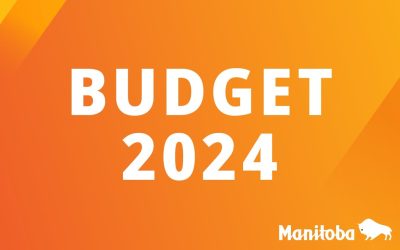Frontier Centre: Doesn’t speculation about the optimal size of government depend on one’s definition of essential public services? What public services do you consider to be essential?
Richard Vedder: The whole concept of optimal government is one that is subject to debate. Public services mean different things to different people. I think there are two or three things that are clearly essential. Adam Smith actually outlined them in The Wealth of Nations. They are nothing new to me: protection of property or property rights, the rule of law, a court system or judiciary, police and fire protection and probably a national defence. That pretty much summarizes it. Anything beyond that, I think, is subject to great debate as to whether it ought to be in the public or private sector.
FC: Based on that, what do you think is the optimal size of government?
RV: I think the optimal size of government is probably quite small. The Bible talked about ten percent of one’s money going to God and I think that’s about what Caesar ought to get. So a tithe of about ten percent to government would be not too far off. I think you could run an efficient government for about ten percent of the national output.
FC: Most industrialized democracies have state-sector sizes that are much larger than that. Does that mean we are accepting a lower standard of living than we otherwise could have?
RV: There’s no question that our material standard of living has been significantly reduced by excessive growth in government and the welfare state.
FC: Even from those who favour a less expansive public sector, we’ve seen recommendations for its optimal size vary from the teens to as high as thirty percent. Why do preferences vary so widely?
RV: Different people have different ideas of what is required, of what is a public service or what belongs to government. Some people, for example, would think higher education should be offered by the government and other people think that is something that could be entirely privatized. The same may well be true of basic primary and secondary education.
FC: If a country mandates pensions and health-care, but in the form of privately held accounts, would you consider that spending public or private?
RV: That’s a good question and a tricky one. I suspect it would still be private spending if it’s controlled by the individual and the individual is making decisions on the investment. But the fact that the individual is required to allocate his or her resources in that particular way is a public decision. So it is a grey area where it’s very difficult to answer the question.
FC: A bigger public concern here seems to be that we don’t get a high enough quality or quantity of the public goods for which we’re already paying. Is the effectiveness of public-sector spending related to its total size?
RV: The larger the public sector is, usually the more inefficient it is. Smaller public sectors somehow find ways to do the essential things with fewer resources. Incremental or increased resources to the public sector often tend to get wasted, or used in a less efficient fashion than is desirable.
FC: We’ve estimated the combined impact of three levels of government in Manitoba at 47.4 percent of the economy, about 25 percent higher than the Canadian average. Some of the consequences have been slow rates of economic growth and the loss of young, educated populations. Is the same phenomenon visible between American states?
RV: Absolutely. You have described the American situation perfectly, to a tee. We see exactly the same phenomenon. States like my own, Ohio, are rapidly losing migrants because we have a similar high-tax, high-spend policy. States like Nevada are rapidly acquiring new migrants into the state because they have relatively low taxes and a modestly lower level of government services.
FC: Are you familiar with Colorado’s Taxpayer Bill of Rights? Do you think legislated limits on the size of government are the way to go?
RV: I am indeed familiar with Colorado’s TABOR, and I consider it an innovative and appropriate method of restraining government. Political traditions and cultures vary from state to state and nation to nation and in some situations it may not be the optimal way of dealing with government size. But on the whole I applaud the Colorado approach.
FC: What is the optimal way of dealing with that issue?
RV: The optimal way varies from society to society. If I knew, I probably wouldn’t be talking with you today. I really don’t know that I can answer that. But constitutional limits are an important tool in the arsenal of those who wish to reduce the size of government.
FC: What would you say to those who claim that we need to have a larger public sector because we’re a poorer province, and that if we reduced government spending we’d be even poorer?
RV: I would say that the empirical evidence does not support that position. Look at the evidence, I’d say. Look at the numbers. Look at provinces of Canada that have low levels of public sector support, such as Alberta, and compare them with areas that have high levels of government support, such as Manitoba. What do you see? You could do the same thing with nations and compare Sweden with Ireland, or in American states compare Kentucky and Tennessee or North and South Dakota. You always find that the lower-sized government sector and the smaller tax sector tends to have higher rates of economic growth.
FC: What is your opinion of flat income taxes?
RV: I prefer flat income taxes to progressive taxes. Obviously, if flat taxes are at an extremely high rate, they are going to debilitating just as progressive ones are. But on the whole, flatness in the tax structure tends to be supportive of economic growth.
FC: How is it that American Republicans have presided over substantial increases in the size of the federal government but by your measure it declined under Clinton, a Democrat?
RV: The question is an excellent one. The Republicans in the United States have put the perpetuation of power ahead of principles. They have abandoned their principles in a short-sighted move, in an attempt to buy votes through spending money. It is a mistake and it will cost them dearly in the elections in 2006 and beyond.
FC: Clinton’s budget director, Alice Rivlin, claims that government under his regime actually reduced its share of GDP because it made spending “more effective.” Do you agree?
RV: No, I don’t. I very seldom agree with Alice Rivlin. It is actually true that spending fell dramatically under Clinton, partly because of the accident of a sharp reduction in defence spending because of the end of the Cold War and partly because Republicans forced the Democratic administration into spending con-straint. But I don’t think there were any particular efforts at efficiency or improvements in productivity under the Clinton administration.
FC: You’ve expressed significant mistrust of the numbers used to report GDP and other macro-economic indicators. Can you describe why?
RV: GDP is an aggregation. You are adding together the activities of many different people. A lot of things don’t get included in GDP because they are not performed in markets. A number of activities are conducted illegally that don’t get measured. There’s a variety of problems with measurement of GDP and the frequent revision of GDP numbers indicate the degree to which the statisticians themselves often have difficulty in measuring it.
FC: You’ve said that a dollar in taxes really costs the economy at least $1.40 and perhaps as much as $3. Why?
RV: First of all, there’s a dead-weight loss from taxation. When you increase taxation, you are reducing private sector spending and there are welfare effects or positive economic effects from those. Economists talk about consumer surplus, which is gains to consumers from being able to buy goods for less than they cost. Those are reduced when you impose taxes. Also, government activity is far less efficient than private sector activity, and so dollar for dollar, it takes two dollars of public spending to get a dollar’s worth of private spending in terms of its positive welfare effects.
FC: You’ve also said that reductions in government spending by a few percentage points can dramatically increase the size of the economy. How?
RV: When you reduce the size of government, you are increasing the size of the private sector. The private sector, dollar for dollar, uses resources more efficiently and productively than the public sector because they have incentives to do so that are determined by the market system.
FC: Various states have no income taxes. Is it possible for Manitoba to eliminate its provincial income tax?
RV: Manitoba can do anything it wants if it puts its mind to it. Manitoba could eliminate its income tax without any significant reduction in the level of government services. It will take a period of years and would require dedicating revenues from economic growth to tax reduction rather than to expenditure increases. It can be done, it has been done in other jurisdictions and Manitoba would be well served to do it.
FC: What’s the American record when you compare states that have no income tax with those that do have income tax?
RV: States without income tax have had far higher rates of economic growth. For example, since 1990 4.5 million Americans have moved from the 41 states that do have income tax to the nine states that do not have income taxes. People are fleeing high taxes and oppressive costs of government for areas where there is greater freedom and more opportunity for individual initiative.
FC: Why cut income taxes as opposed to, say, sales taxes or other taxes?
RV: I generally favour any form of tax reduction. But the sales tax is a tax on consumption, on what we spend, and income tax is a tax on what we produce and on the rewards for producing things. By taxing income directly, we are taxing production, we are taxing output, we are taxing our ability to provide income for us all. That is a more onerous and a more seriously negative form of taxation than taxing consumption.
FC: What happens when you have transfers between levels of government, in the way that it’s done in Canada?
RV: Transfers between the levels of government tend to have negative, unintended consequences. In the United States empirical evidence suggests that the more that the U.S. federal government subsidizes the states, or transfers money to them, the lower the rate of economic growth in those states, even after controlling for a variety of other factors which might determine economic growth.
FC: So if you stop the transfers, what would happen to the economy?
RV: If you lowered or ended transfers, there may be some immediate transitional issues but beyond that the effect would be favourable. Resources will ultimately equalize between various areas and poor areas will become rich if you allow the markets unfettered freedom to operate. Poor workers will move to areas where wages are high. Rich capitalists will take their capital and invest in areas where wages are low. You will equalize the capital-labour ratios and wages and incomes between areas. It has worked beautifully in the U.S. for the last 75 years, where more than two-thirds of the differential incomes between the American states have been eliminated through the forces of the market. You don’t need equalization done by governments.
FC: What would you do in Canada with the equalization program?
RV: I think I would get rid of it. Getting rid of the equalization program may have certain political obstacles and there may be some transitional issues about which I know nothing. But I would say that Canada should adopt for equalization a ten-year or fifteen-year policy much as it might with income tax elimination and gradually get rid of the equalization payments over time, allowing society to adjust to the new arrangements. I think it would work just fine. I think the areas that are currently being subsidized would have a revitalized economy as individual responsibility replaces government handouts as the basis for earnings.
Read in PDF format here.



